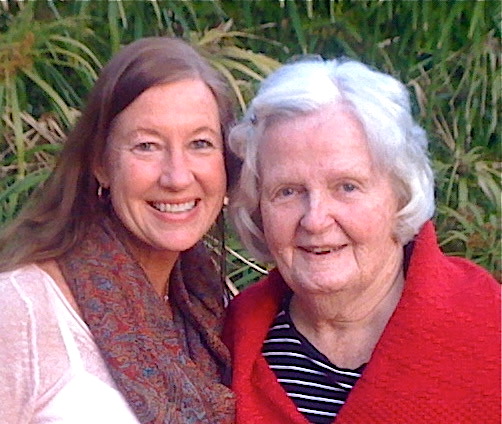“Dignity and respect are common courtesies and human values.”
I remember when my mother started having symptoms of dementia. She was in her late 60’s. She was scared, anxious, and increasingly fretful. Over time, she was diagnosed with Alzheimer’s disease.
For myself and my sisters, we witnessed with heart-breaking sadness as a bright, inquisitive woman slide through the dark years of decline until she was tragically but a shell of herself. Although we felt helpless to stop the disease, we did help her to feel safer and more comfortable.
Dementia is a neurodegenerative syndrome
Dementia is a neurodegenerative syndrome in which there is deterioration in cognitive function beyond what might be expected from the usual consequences of biological aging. Dementia is characterized by the impairment of several brain processes and functions, such as memory, personality, language, and cognitive skills. The disease is associated with the loss of cognitive functions that include remembering, thinking, and reasoning.
The impairment in cognitive function is commonly accompanied and occasionally preceded, by changes in mood, emotional control, behavior, or motivation. It also affects behavioral abilities, which may progress to such an extent that it interferes with the person’s ability to care for herself.
Dementia is currently the seventh leading cause of death among all diseases and one of the major causes of disability and dependency among older people globally. Presently, more than 55 million people live with dementia worldwide, and there are nearly 10 million new cases every year.
As the proportion of older people in the population is increasing in nearly every country, the number is projected to increase to a staggering 78 million in 2030 and 139 million by 2050.
In the United States, Alzheimer’s disease (AD), a type of dementia, is the sixth leading cause of death and affects around 5.7 million people. Alzheimer’s disease is the most common type of dementia. It accounts for about 60 to 80 percent of all dementia cases. Two-thirds are women.
There is currently no treatment available to cure dementia or Alzheimer’s disease. Dementia has physical, psychological, social, and economic impacts, not only for people living with dementia, but also for their carers, families, and society at large.
Significant efforts are underway to find effective treatments and prevention strategies for Alzheimer’s disease and related dementias. But for the millions of people living with these diseases today, there is an immediate urgent need to find effective ways to improve dementia care and support.
Each person suffering from memory loss, dementia, Alzheimer’s disease, or Parkinson’s disease is different. When it comes to offering support, different things are helpful for different people. Knowing the person, their history, and interests, and understanding how dementia affects their lives is crucial if the support offered is genuinely helpful.
The way we support a person with dementia makes a huge difference to how they experience living with dementia. From a holistic health perspective, we can slow the rate of decline by increasing sensory activities.
Using Flower Essence Aromatherapy with Dementia
There is a lot of evidence that aromatherapy is effective in helping people with dementia to relax, and that certain aromas may have the potential to improve cognition in people with dementia and Alzheimer’s disease.
We know that Aromatherapy is one of the most effective means to improve the quality of life for people living with dementia. Certain aromatic blends can decrease stress, agitation, improve sleep, ease symptoms of anxiety, and stimulate better cognition.
Aromatherapy works by exciting olfactory receptors that stimulate the part of the brain linked to the regulation of emotions. Increased stress is common for those with dementia and certainly, it may make dementia worse especially for the agitated and confused patient who may also be suffering from grief, depression, anxiety, and nervous tension.
Like any complementary therapy, Flower Essence Aromatherapy is not a replacement for medical treatment and should only be used if it appears to bring some pleasure or calm to the person being treated.
In honor of Alzheimer’s Awareness Month, several Fleur Alchemical Wellness Care Flower Essence Aromatherapy non-pharmacological products are discounted for you to help people at differing stages of dementia feel more comfortable.
While it is recognized that aromatherapy is not a cure for dementia, smell and touch are powerful messengers, often penetrating the fog of mental confusion in which words cannot.
Praśānta Body Oil is a beautifully calming oil created to help soothe elderly patients with dementia who are likely to experience stress as overwhelm, agitation, and aggression at different points in their disease process. It contains a fusion of organic essential oils of Lavender and Sweet Orange to gently calm and comfort in a base of jojoba oil for easy absorption.
My mother responded to touch when she did not know that I was her daughter. Touch is a basic human need and its importance for both mental and physical health has been well researched. I would slowly massage her hands and lower arms while talking with her to provide a loving connection of caring comfort. She would smile at me and say, “that’s nice, you are so nice!”
Clarity & Focus Flower Essence Aromatherapy Spray is formulated to stimulate and awaken the mind. Organic essential oils of Lemon, Basil, Coriander, Rosemary, Cypress, Fir, Peppermint, Melissa, and Vetiver are suspended in a flower essence solution that when misted around the head and body help improve cognitive function, enhance thinking, sharpen attention, focus and concentration after regular inhalation.
Clarity & Focus Spray is safe to use with people living with dementia at home or with the elderly in memory care facilities.
When aromatherapy and flower essences are combined, a therapeutic synergy is created that effectively treats the whole person – body, mind, and spirit. The alchemical synergy of flower essences provides additional care to soothe the emotional distress associated with dementia.
Patience is Queen and Compassion is King!
It is important to understand that a person’s “consciousness” is not affected by dementia. Spending time with your elderly loved ones, treating them with compassion, patience, gentleness, kindness, and loving care increases dignity and respect.
Making an effort to understand the person with dementia, communicate well, and build a caring relationship with them requires empathy, calmness, and staying in the present moment.
If you have a parent or grandparent that has been impacted by this disease—or if you yourself are experiencing it—then you know how debilitating and painful dementia can be. In challenging and uncertain moments, it’s helpful to have Flower Essence Aromatherapy support from people who understand what you’re going through. Aromatic living with dementia is possible. Because really, you are not alone.
All my Love,
Vidya

